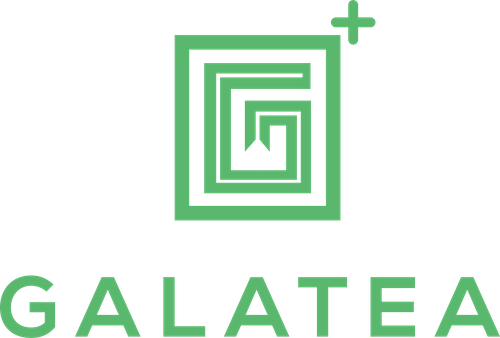Hiya writer friends,
As you may have noticed, we have Galatea sponsoring our issues this week. We’ve talked about serialized genre fiction several times in this newsletter and Galatea is a prime example of how hundreds of thousands of readers in “niche” fiction are finding and reading stories. While I personally don’t write to market, I believe that it is crucial for writers to understand the business and know what’s selling so we can take advantage of trends that will help us write more, sell more, and find more readers.
That belief is at the core of why I started this newsletter. I’m also committed to keeping this newsletter free for readers and not introducing subscriptions. Having ads helps me stay true to the vision of democratizing this information so that it’s not always in the hands of a few wealthy authors who can afford the classes and conferences.
While I can’t personally vouch for every advertiser, I will do my very best to only bring you resources that actually help your career and move our conversation forward.
Enjoy the issue!
NEWS & VIEWS
Paying for a spot on bestseller shelves
A bestseller is a bestseller except in publishing where it sometimes, well, not. An investigation by BBC Radio 4’s Front Row program has found that “publishers often pay booksellers to be in their stores and, in one case, on its bestselling list.”
Why it matters: Authors are often told that bestsellers just happen. And while that can be true, it is equally true that many bestsellers are made.
A book that gets marketing dollars will, all other things being equal, do better than a book that doesn’t. A marketing budget allows publishers to send galleys far and wide, run ads (both online and offline), take advantage of promotions on Amazon and Goodreads, buy front-of-store placement and, as the BBC points out, get on their bestseller shelves.
From the BBC story:
-
WH Smith asked for £2,000 in exchange for promotional space, including a position in the fiction chart–for as long as sales warranted it–and the book of the week slot. The chain says its book charts are not solely based on how many copies have been sold.
-
Paying for prominence in a shop or a place on a chart is described by some as an open secret in the publishing industry.
The publisher’s email seen by Front Row also showed that WH Smith wanted a 60% discount on the recommended retail price and a 45p “retro fee” for every copy sold, taking the publisher’s share of a £10 book down to below £4. In return, WH Smith would stock between 2,000 and 3,000 copies.
- Independent book stores do not charge publishers for prominence or chart placings, while Waterstones chief executive James Daunt says his chain stopped doing so when he took over in 2011, despite the move costing £27m in lost deals.
Key takeaway: In the traditional vs. indie debate, one of the key factors that often doesn’t get discussed is how crucial publisher partnerships and distribution channels can be to the success of a book. Being traditionally published doesn’t guarantee that your publisher will use those channels for your book, but as an independent author, it’s extremely difficult to get visibility in bookstores and supermarket chains without those networks. And while BBC’s investigation is into British publishing, this holds true for publishing across the world.
SEE ALSO:
You can’t look away. On responsibility and horror: “The most effective horror stories cause a psychological reaction… These films ask its viewers to understand it. Yet in those extremes, we also find that the depraved and the gory, the dark and the disorienting, often steps into a space that blurs the lines, lulling people into the reaction without being mindful of what’s at stake, what exactly is being posited in these gruesome scenes.”
Pursuing approval, the perks and perils: “So how about today we give ourselves (and each other) permission to care less about the approval of agents and editors and more about our passion, our gut, and our stories? Permission to play with words and characters, to carve out time to write, to choose writing over weeding, folding laundry, cleaning the bathroom?”
WRITERS WANTED
Jerwood Poetry Fellow Jamie Hale is launching the UK’s first Disabled Poets Prize in collaboration with Spread the Word, Verve Poetry Press, Verve Poetry Festival, and CRIPtic Arts. This Prize looks to find the best work created by UK based deaf and disabled poets, in written English and in British Sign Language.
Deaf and disabled poets will be able to submit to three categories—best single poem, best unpublished pamphlet, and best poem performed in British Sign Language. In each category, there will be a first place prize (£500), second prize (£250), third place prize (£100), and three highly commended entries, (£50).
The Prize offers significant professional development opportunities for the winning writers, including a publication deal with Verve Poetry Press for the best unpublished pamphlet as well as development prizes from The Literary Consultancy and Arvon Foundation.
THE WORDLING SPONSOR
Immersive fiction at your fingertips – the world’s most addictive stories
Click here
to start reading the Galatea bestsellers for free!
WORDLING INSIGHT
If you’re not happy today, you’re not going to be happy when you achieve that big dream or goal.
Want to be truly happy when you get to your dreams?
Learn to be happy now.
GLOBAL REPORT
RUSSIA: “In the six months since Russia invaded, the state media’s emphasis in reporting the war has gradually shifted. Gone are predictions of a lightning offensive that would obliterate Ukraine. There is less talk of being embraced as liberators who must “denazify” and demilitarize Ukraine, though the “fascist” label is still flung about with abandon. Instead, in the Kremlin version — the only one most Russians see, with all others outlawed — the battlefields of Ukraine are one facet of a wider civilizational war being waged against Russia.”
SOUTH SUDAN: “South Sudan ranks 128th out of 180 countries in the World Press Freedom Index, with journalists facing censorship, threats and intimidation, unlawful arrest and death. In addition, journalists undergo trauma from reporting on ongoing violence, and are often unable to afford psychological support due to low wages. As a result, many journalists have joined NGOs and the private sector in search of better pay and safer work environments, hollowing out the already-struggling media space in the country.”
INDIA: Rahu Soni, an executive editor with HarperCollins, India, and a Frankfurt Fellow for 2022 talked about Indian publishing. “While the market for books is huge here, the audience is still an aspirational one. They’re looking for works that have utility, that will help improve their lives in some concrete immediate way, or at least hold out the promise to, books that will teach them things or that will reaffirm their existing convictions and beliefs rather than challenging them. Literature is still considered very much a luxury in the Indian market, which one may not agree with but it’s understandable in a nation that’s still struggling economically and on many basic indices of development.”
QUOTE OF THE DAY
“Don’t bend; don’t water it down; don’t try to make it logical; don’t edit your own soul according to the fashion. Rather, follow your most intense obsessions mercilessly.”
– Franz Kafka
SHARE THE WORDLING
There’s nothing quite like smashing a deadline. Share The Wordling if you like checking off items on your to-do list.
or
Support The Wordling with a tip.



